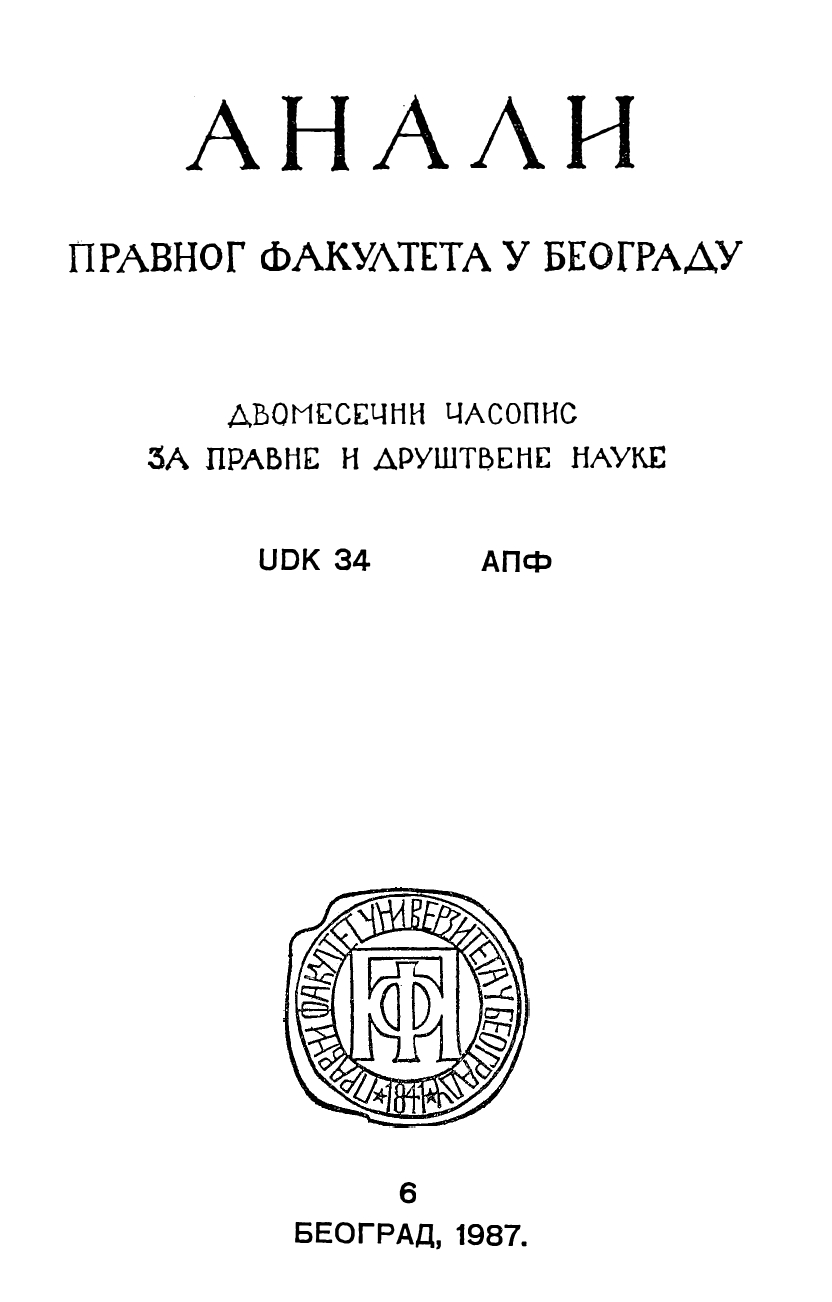ЗАЛОГА У СТАРОМ ДУБРОВАЧКОМ ПРАВУ
PLEDGE IN OLD DUBROVNIK LAW
Author(s): Jelena DanilovićSubject(s): Law, Constitution, Jurisprudence, History of Law
Published by: Правни факултет Универзитета у Београду
Summary/Abstract: l practice, as noted down in notarial and office books, provides suffcient information on the ground of which it is possible to observe the development of that institution until the middle of fourteenth century, which period may be considered a turning-point in Dubrovnik legal history. The right of pledge had a significant position among other instruments of safeguarding of claims available to creditors. The usual term for pledge is pignus, regardless of its form and object, while the expression signum, too, is in use, meaning a sign. Already that imprecise terminology witnesses to the fact that the right of pledge in that period underwent important transformations. Various form of pledge may be reconstructed out of relevant sources, beginning with those characteristic for ancient customary law and up to the ones whose legal regime correspond to the right of pledge in the ius commune. In the oldest form of pledge, the borders between Roman and contemporary notions of ownership, possession and property rights regarding other person’s property in fact do not exist, so the creditor possesses the pledged property while behaving as the owner. For quite a long time in legal practice the conception prevailed according to which the pledge replaced the claim, namely — the creditor acquired the object of pledge instead of money he has lent to the debtor. To achieve that purpose, the instrument of sale contract is applied with the right of buying back, although this practice has ceased by the end of eighteenth century. That same conception is found in the foundation of the contract of pledge according to which the creditor keeps the pledged object for himself and is entitled to dispose of it in whatever way, if the debtor does not fulfil his duty. It is found, even more conspicuously in case of a contract according to which the debtor is the one having the option regarding the fulfilment of his duty, while the creditor is only left with possession of the pledged property and with its use until the debtor becomes able to pay (or until he desides to pay off repossessing thus the pledged property). The reflection of these old conceptions is noted in otherwise „modem" procedure in case of sale of pledged property by auction. Namely, the debtor is called not to fulfil his duty, but to „request" or to „buy off" the property. The receipts, too, have a clause according to which the object at issue is bought off, so that the debtor is not any more entitled to claim if from the creditor. In case of rather widely applied antichresis for quite a long time conceptions have been present which were characteristic for the old customary law which were concisely formulated in some documents from the same period found in Kotor, namely: money does not have gains, while there is no rent to be paid for land (or house); in other words, the creditor uses the property (object), while the debtor — the money. Gradually, contemporary conceptions find their way, and they are found at pledge of movables and mortgage, as well as in the effect of the right of pledge towards third persons. They are also present in case of sale of pledged property after court intervention, in case of auction, as well as in cases of antichresis, where a duty of the creditor begins to be stipulated in contract, to deduct the value of returns from his claim. The pledge gradually develops into an institution of the property law which serves for safeguarding the creditor.
Journal: Анали Правног факултета у Београду
- Issue Year: 35/1987
- Issue No: 6
- Page Range: 637-662
- Page Count: 26
- Language: Serbian

